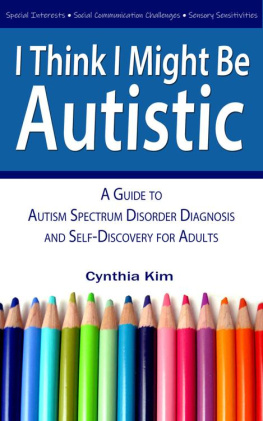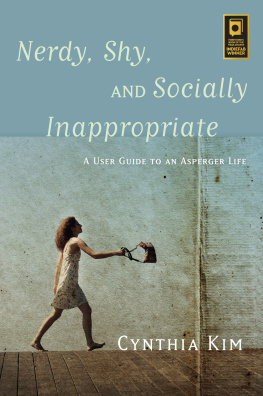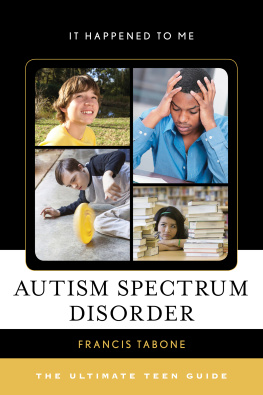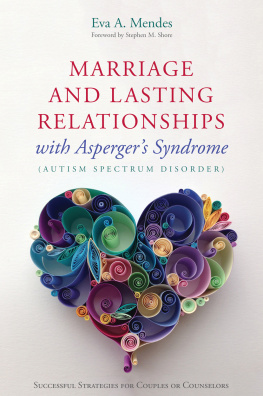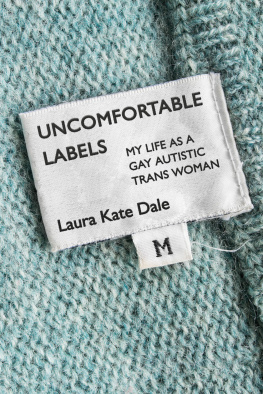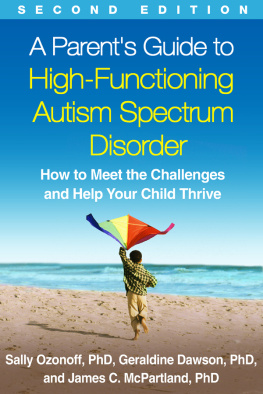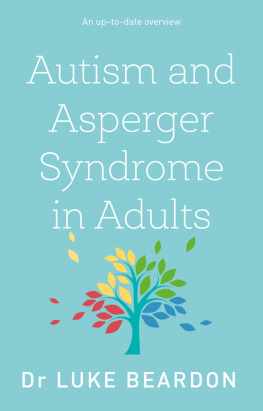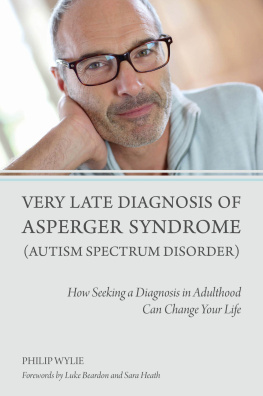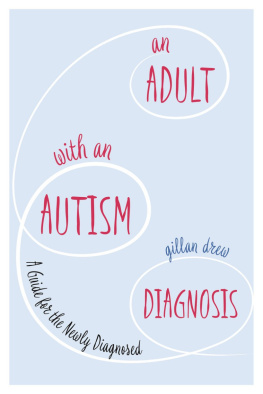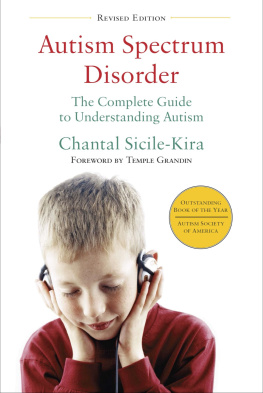I Think I Might Be Autistic
A Guide to Autism Spectrum Disorder Diagnosis and Self-discovery for Adults
by
Cynthia Kim

I THINK I MIGHT BE AUTISTIC: A GUIDE TO AUTISM SPECTRUM DISORDER DIAGNOSIS AND SELF-DISCOVERY FOR ADULTS. Copyright 2013 by Cynthia A. Kim. No part of this book may be reproduced or transmitted in any form or by any means, electronic or mechanical, including photocopying, recording or by any information storage and retrieval system, without permission from the author, except for the inclusion of brief quotations in a review.
Disclaimer
This book is designed to provide information about autism spectrum disorder. It is not the purpose of this book to reprint all the information that is otherwise available to the author, publisher, printer or distributors, but instead to complement, amplify and supplement other texts. You are urged to read available material, learn as much as you wish about the subjects covered in this book and tailor the information to your individual needs.
Every effort has been made to make this book as complete and accurate as possible. However, there may be mistakes, both typographical and in content. Therefore, this text should be used only as a general guide and not as the ultimate source of information on the subjects presented. The authors, publisher, printer and distributors shall neither have liability nor responsibility to any person or entity with respect to loss or damages caused, or alleged to have been caused, directly or indirectly, by the information contained in this book. If you do not wish to be bound by the above, you may return this book to the publisher for a full refund.
1. Introduction
When I first suspected I might have Aspergers syndrome, my instinct was to look for somethinga test or a book or a websitethat would confirm or disprove my suspicion. I spent hours and then days searching the internet for the type of resource I imagined must be out there.
I found plenty of information about identifying autism and Aspergers in children, but very little for adults. Well, I thought, I guess Ill just have to get some sort of professional evaluation. I figured it would be like getting diagnosed with any other health condition: Id visit my doctor, hed refer me to a specialist, the specialist would do some tests and offer me a definitive answer to my question: Am I autistic?
That was the beginning of a year-long quest, which ultimately resulted in an Aspergers Syndrome diagnosis. Along the way I discovered that not only was it challenging to get an autism assessment as an adult, there was very little information available to guide adults like me through the process.
Compounding the lack of resources, many general practitioners and mental health professionals are unfamiliar with how autism looks in an adult. The first professional I asked about getting an assessmenta university mental health counselorlooked at me like I had three heads. Then she made a half dozen phone calls and, unable to refer me to anyone in the community, shuffled me off to the universitys disability resource center with an apology.
Adults who suspect they may be on the autism spectrum often need to become self-advocates, arming themselves with the information necessary to make their case to a series of medical professionals.
When I began blogging, I quickly realized that I wasnt alone in how difficult I found navigating the medical and mental health system. Many of the comments I received on my blog were from adults in their twenties, thirties, forties and fifties who were beginning to suspect they might be aspie or autistic. There were a range of reactions from relief and happiness to panic and despair. Many asked me how I confirmed that I have Aspergers. Others described long, complicated journeys through the mental health system fraught with misdiagnoses. Some said theyd given up and were content with their own well-researched self-diagnosis or with an informal diagnosis received in the course of therapy or from their autistic childs psychologist.
One theme that ran through so many of those I think I might be autistic comments was how each person felt that he or she had to figure out the diagnostic process from start to finish. This struck me as not only highly inefficient but unnecessary.
By that point, Id struggled through the process from those earliest realizations to receiving my official looking diagnostic report. Id read dozens of other autistic adults experiences with getting or trying to get a diagnosis. Thanks to my newly developed special interest in autism, I had a strong foundation of knowledge. Putting all of those things together, I began to develop a blog post about getting diagnosed with autism spectrum disorder as an adult.
And this is where I should qualify everything youre about to read by saying: Im not a medical professional. Im an autistic adult who has done a lot of research about autism. I write from personal experience and have done my best to fact check my research but this guide is by no means all-inclusive or infallible. I strongly recommend that you do as much additional research as necessary to make the choices that you feel are appropriate to your situation.
With that out of the way, lets get started.
What follows is background information, tips and suggestions for adults who think they might be autistic mixed with a personal account of my own discovery and diagnosis process. I hope it strikes a balance of encouragement and caution. My Aspergers diagnosis was one of the best things that ever happened to me, but getting to that day when the diagnostic report arrived in the mail wasnt always easy.
My goal in writing this isnt to tell you what to do, but to show you what worked and didnt work for me and provide you with the knowledge and resources youll need to make your own way through the discovery and diagnosis process.
*A note on language: The language used to talk about autism spectrum disorders can be confusing at first. I use autism, autism spectrum disorder and Aspergers syndrome interchangeably. Aspergers syndrome is no longer an official diagnosis in the United States, having been folded into autism spectrum disorder as of May 2013. People who were diagnosed before Aspergers syndrome was retired are still regarded as having Aspergers, even though today they would be diagnosed with autism spectrum disorder.
I also use autistic and aspie (shorthand for a person who has Aspergers syndrome) interchangeably to refer to myself. I sometimes use person with autism, on the autism spectrum or with Aspergers when it makes the text easier to read. There is no single correct term. When referring to a specific person, its always best to inquire if they have a preference and then use it.
2. Autism Spectrum Disorder: Definition and Traits
If youre reading this, you may already have a good idea of what autism spectrum disorder is. However, due to the way autism is commonly portrayed in popular culture, you may have some misconceptions as well. I know I did.
Lets start with a definition of autism spectrum disorder, based on the American Psychology Associations Diagnostic and Statistical Manual of Mental Disorders Fifth Edition (DSM-5):
Autism Spectrum Disorder (ASD): This phrase describes a developmental disorder characterized by persistent lifelong impairments in social communication as well as the presence of restricted, repetitive patterns of behavior, interests or activities. These symptoms appear in early childhood, and may vary in intensity or manifestation throughout a persons lifetime. Taken together, symptoms of ASD impair and limit everyday functioning in some areas. Until May 2013, Aspergers Syndrome and Pervasive Development Disorder - Not Otherwise Specified (PDD-NOS) were treated as separate subtypes of ASD. This is no longer the case.

